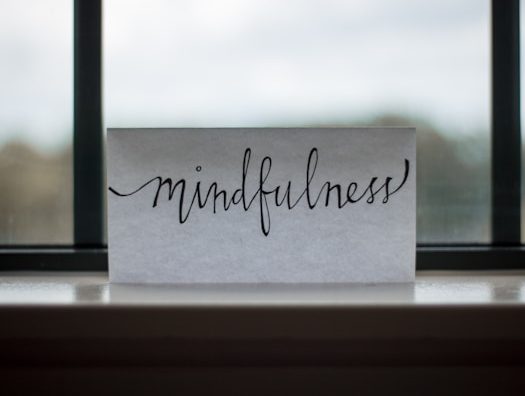Facts Versus Criticism
First, it is important to distinguish the difference between facts and criticism.
Facts are objective and unbiased statements about reality while criticism involves labelling, disapproval, and moral or value judgments.
For example, you are trying to increase your physical activity frequency to five days per week. It is Sunday and you have only been to the gym twice.
- Statement of fact – I have not reached my goal of doing physical activity five days per week.
- Criticism – I am useless, I have only been to the gym twice. I’ll never be able to get fit. Everyone is going to see me as the lazy person I am.
Both examples are a reflection of your goals and the outcome. However, as you can see, the second example is filled with a lot of irrelevant information and assumptions. It is a fact that you only did two days of physical activity and failed to reach the goal of five days. However, does this mean you are lazy? Does it mean you are useless? Will you never be able to get fit? We don’t know that. These are not facts; they are criticisms and assume core faults.
What is the function of this criticism?
Two different reasons will be provided here. First, that self-criticism acts as motivation for future improvement and second, that self-criticism is a self-attack to protect others.

Self-Criticism as Pseudo-Motivation
When asked about the benefits of self-criticism, people will often reason that it helps motivate them to do better.
Is criticism a good motivation tool? Luckily, we can test this right now with two questions.
The first one is multiple choice:
Q1. A child who is learning to ride a bicycle, has just fallen off. How do you motivate them?
Choose the best response.
a. “Awe, that’s okay little one. Everyone makes mistakes and falls off a few times when they are learning. Just look how far you have already come. With some more practice, I know you can do it.”
b. “What’s wrong with you? Are you stupid? All of your cousins learnt to ride a bike when they were younger than you. It’s not that hard. You just need to try harder, have better balance, and stop falling off.”
These responses are intentionally polar, but maybe not so far off how you might treat yourself sometimes. Hopefully it is clear that the first option is likely to result in increasing the child’s confidence and intrinsic motivation to work harder to reach their goal. While in the second option, the child is not likely to want to try again.
For some reason, the clarity of this example might be lost when applying it to yourself.

The second question is a little trickier:
Q2. Think of a time that you criticised yourself which increased your motivation to achieve your goal?
Be very careful here to differentiate facts from criticism. Reviewing facts is essential to determining the causes of errors and to plan for improvements. What we want to know is how the addition of criticism increased your motivation further.
What example did you think of
Write it down here: __.
You were not given space because I am assuming you couldn’t think of an example of where self-criticism caused an improvement in motivation. My guess is that you found the exact opposite. When self-critical thoughts are running through your head, you likely feel low, depressed, and don’t feel like doing much of anything.
Self-criticism is pseudo-motivation. On the surface, it seems like a motivating strategy to reach your goal, but, with careful observation, you find that it actually results in reduced motivation.
There might be some situations that which criticism might seem like a good motivational strategy, such as a coach drilling their client about their low level of physical ability or a supervisor reprimanding an employee for a mistake. However, any increase in motivation the person experiences is likely to be aimed at avoiding punishment instead of motivation for improvement for its own sake.
Self-Criticism to Protect Others
From a psychodynamic perspective, self-criticism is an automatic process that protects others from your anger by turning it back onto yourself.
You are constantly in relationship with other people and rarely do everyone’s goals and needs perfectly align. This conflict continually triggers emotions within you.
For example, you message a close friend on Saturday morning asking if they could send you a recipe they told you about the week before, as you want to make it for dinner that night. The message shows as read but your friend has still not responded by Sunday afternoon. You are presented with the problem of feeling frustrated/annoyed/angry towards your friend for not replying to your message, but this is also a good friend that you love. Love and anger are difficult things to hold at the same time, which can contribute to an inner conflict (anxiety).
There is a simple fix to avoiding this internal conflict and anxiety; by removing the anger towards your friend. Unfortunately, you can’t eradicate emotions, just like you can’t eradicate the urge to go to the bathroom. Emotions are pre-conscious responses which will have some form of expression, whether you like it or not. In this example, the anger turns inwardly towards yourself as self-criticism. Your mind ruminates, wondering what you have done wrong to upset your friend and why they are ignoring you. It is now your fault that your friend didn’t message you. Your thoughts tell you that your friend is avoiding you because you are unlikable and not a good friend, [insert a frequent self-critical thought here].
Your friend messages back later that Sunday and tells you that they read the message and planned to send the recipe but got sidetracked and “totally forgot about it, sorry”. You say, “it’s fine, it was not very important”, all the while the self-critical cogs are turning in the back of your mind wondering if your friend is still upset with you.
From this perspective, self-criticism can occur when your anger towards others is misdirected at yourself. You take the blame for situations that annoy you to protect others from your feelings. They stay safe while you suffer.

Why Would Anyone Want to Hurt Themselves?
These are only two perspectives about the cause of self-criticism. In both cases, self-criticism has a function, albeit a flawed function that results in self-harm: a pseudo-motivational function or a protective function.
Self-criticism can develop from how others have treated you in the past, becoming a habitual way of speaking to yourself. If you regularly experienced criticism as a form of motivation when you were young, then your mind mistakes this pseudo-motivation as a productive way to speak to yourself.
Self-criticism can also serve as a defence mechanism, hiding your emotions when you believe they are too intense for others to handle. By turning anger inward, you protect others from your feelings and ensure the continuation of relationships. However, underlying this defence is the belief that expressing your true emotions might overwhelm others, leading to abandonment. Therefore, you sacrifice your own emotional well-being to keep your relationships intact, thinking, “You cannot handle my feelings and will leave me, so I must suppress them to keep you close.”
How to Stop Self-Criticism?
The first step is to start identifying self-critical thoughts through a process called ‘meta-cognition’ (i.e., thinking about thinking) or mindfulness. By recognising self-critical thoughts, you can distinguish them as thoughts and not facts. Self-criticism is an automatic learned mechanism and not you. Once recognised the thought is not part of you, then you have a choice whether you want to continue thinking about it.
Once you identify the thought, consider what the function is. You have learned two possible functions today – Pseudo-motivation or internalised anger.
Ask yourself the following question:
- How is this self-critical thought helping me right now?
- Is this self-critical thought motivating me or getting me depressed?
- What are the feelings underneath this self-criticism?
- Who is the criticism actually directed at right now?
Read this short article if you would like to learn more about how unexpressed anger can cause anxiety and emotional problems.

Summary and Key Points
Self-criticism involves negative judgments and assumptions, contrasting with neutral, objective facts. While self-criticism may appear motivating, self-criticism often reduces motivation and increases feelings of depression. Additionally, self-criticism can act as a defence mechanism, turning anger inward to protect others from your emotions. To reduce self-criticism, reflect on your self-critical thoughts and ask whether they are benefiting you or making you depressed. Ask yourself what emotions your self-criticism covering.
About the author

Tyrone is a clinical psychologist, nutritionist, and qualified chef with an interest in holistic health and wellbeing. Tyrone’s special interests include eating behaviour, disordered eating, weight management, insomnia, and anxiety.
